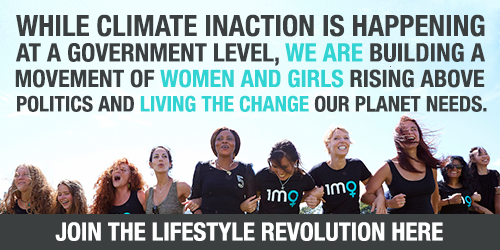You’ve taken out annual leave, maybe you quit your job, you’ve saved your pennies, you’ve researched, booked your tickets, you’ve dreamt and now you’re off on an adventure of a lifetime. And yet, it’s incredibly easy to turn a blind eye on the negative impacts the tourism industry has on our planet.
It's not until we've arrived or perhaps once we've returned that we realise the effects we might have had on the Utopia that was. What I've learnt whilst traveling is that "convenience is king" and it doesn't take much to let our good habits at home fall to the wayside while we're away.
Whether it be; opting for that ice-cold, plastic water bottle or using that spare towel at the hotel or maybe an innocent photo of the local children playing. The trouble is all of these things have the potential to do more harm than good and the first step is acknowledging there is a problem with the industry at all.
Once you're aware, it's easy to see the pitfalls we make on our holidays. We've seen the words 'responsible' and 'sustainable' being put in front of the word 'tourism' a lot lately. But what does 'responsible & sustainable tourism' actually mean?
In short, responsible tourism can be defined as something that "minimises negative economic, environmental and social impacts" says Harold Goodwin, Director of the Responsible Tourism Partnership. Essentially, if we break down the negative impacts a holiday might have on the planet you might be looking at:
- Air Travel – flying produces excessive carbon emissions (this can be worse at night).
- Staying at a hotel - creating an abundance of plastic, energy and water waste
- Eating at a certain restaurants - preferring a foreign owned food chain catering to tourists can reduce a positive economic impact to communities
- Taking a photo of the local school children - potentially disrupting a lesson or worse taken without permission
Imagine you could do all of these things while contributing to a positive economic, cultural and environmental outcome for the destination – that's responsible tourism. Making simple switches like:
- Using public transport - supporting the local economy
- Based on your interests you might participate in a cultural activity or hire a tour guide – helps to engage with the community, building the relationship between tourist and local
- Homestay or AirBnb – reducing your waste footprint and learning how the locals live
- Eat local – opt for the food market or local restaurants to support local farmers and enterprises
With all the hype about 'responsible' businesses & eco-resorts compared with the reality (this video by Alison Teal, sheds a bright light on rubbish in the exotic Maldives) we can be left having felt like the wool has been pulled over our eyes and it all begins with Greenwashing; performed by tour operators, travel agents and often fancy hotels.
Greenwashing is a play on the word whitewashing meaning to; conceal, deliberately cover up and veil any fact, perceived value or a supposed environmentally beneficial outcome. Greenwashing comes in the form of making substantial, yet unsupported claims about a positive environmental impact. It involves misleading customers by using nifty marketing campaigns, public relations and questionable advertising.
Hanging up your towels after use (for example) may sound like a great initiative to reduce water wastage but there needs to be bigger strategies in place to improve a businesses overall impact beyond small measures like this.
Governed bodies such as the Global Sustainable Tourism Council certify businesses based on their responsible efforts. You may start by seeking hotels or tour agents who are certified by the GSTC. Secondly, you might like to check out B-CORP. They're all about business for good and list all types of business, including those relating to the travel industry.
Lastly, Trip Advisor has launched a Green Leaders program to showcase a variety of accommodation that are committed to a more sustainable practice. Just look for the green leaf and you'll be assured that efforts are made (and recorded) to make the business more ethical.
Really to be an ethical traveler, it all starts at home, packing purposefully for your holiday is paramount and has a direct relationship with the footprint you'll leave while you're away, so take these helpful tips:
- Reusable water bottle - consider a water filter if bottled/boiled water is the only option
- Reusable shopping bag for groceries - carry it with you everywhere.
- Menstrual Cup - I'm a recent convert and I'm feeling rather smug about it
- BYO Straw - sure I got a few odd looks in my recent travels to Sri Lanka, but it was far more pleasant than using all of those single use plastics.
- Pack lighter! - It's a hard one to convince pack-a-holics to lighten their load. But truly this is one of the best lessons I've learnt to help reduce my footprint.
Most importantly remember: every little bit helps the planet, so keep it up you good thing!
Read this next: How To Choose Sunscreen That Won't Harm Coral Reefsow To Choose Sunscreen That Won't Harm Coral Reefs
Lexi is your ultimate wanderlust enthusiast with an incurable case of curiosity and a deep passion for action on climate change. Whether it's surfing in Mexico, hiking the Himalayas, motorcycling around India, trekking the Kokoda trail, skiing in New Zealand, Volcano boarding in Nicaragua, snorkeling in Costa Rica or just kicking back here in Sydney she's always intrigued and always learning. You can read more of her work www.avaycay.comFind her on Facebook @avaycayor Instagram @whoislexiconnors.

